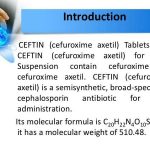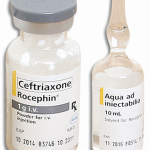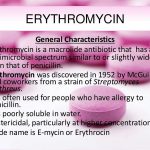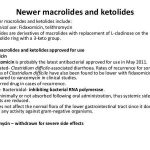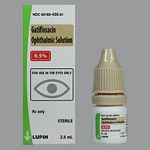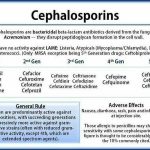
The cephalosporins contain a basic β-lactam structure fused to a six-membered ring. Drugs in this class differ widely in their spectrum of activity, susceptibility to β-lactamases produced by bacteria, and serum half-life. Cephalosporins are categorized into four generations, with each newer generation representing an improvement in the spectrum of bacterial coverage. The most important agents in this class are the second- and third-generation agents, which are commonly used in hospitalized patients in combination with a macrolide.

